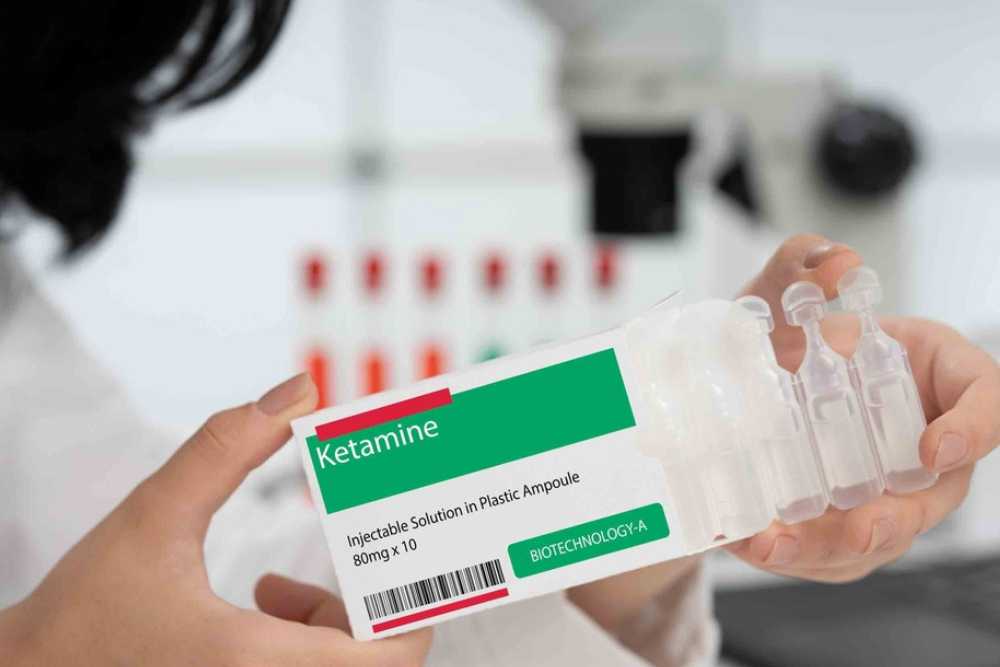Ketamine-assisted therapy has emerged as a promising treatment approach for various mental health conditions, offering several notable benefits. Ketamine has demonstrated rapid and sustained antidepressant effects, particularly for treatment-resistant depression, where traditional antidepressants have proven ineffective. The FDA approved an inhaled version in 2019 for treatment-resistant depression, though it’s typically reserved for cases where other treatments haven’t worked. The mental health therapy in Orange County shows promise for treating depression, anxiety, PTSD, end-of-life distress, chronic pain, and drug addiction problems.
One of ketamine’s most significant advantages is its rapid onset. Unlike traditional antidepressants that can take weeks or months to show effects, ketamine can provide relief within hours or days. Patients report that ketamine infusions can be lifesaving, with immediate improvement for severe depression. While the benefits are promising, ketamine therapy requires careful medical supervision. The treatment can cause perceptual changes and must be administered in controlled clinical settings with proper safety protocols. It’s typically considered when other treatment approaches have been unsuccessful.

How Can Ketamine-Assisted Therapy Help with Depression and Anxiety?
Ketamine-assisted therapy offers unique mechanisms for treating depression and overcoming anxiety in the military that differ significantly from traditional approaches. Unlike conventional antidepressants that target serotonin, ketamine works through the brain’s glutamate system. The drug works by triggering glutamate production, which enables the brain to form new neural connections. This process is crucial for recovery. When someone has depression, there are changes in the brain’s circuitry, including how neurons communicate with one another. Ketamine seems to allow for the regrowth of connections between neurons to help rebuild damaged neural pathways that contribute to depressive symptoms.
The therapeutic process involves strengthening neural connections in a lasting way. Proposed mechanisms of ketamine’s action may act in a complementary fashion to exert the acute changes in synaptic plasticity, leading to sustained strengthening of excitatory synapses, which are necessary for antidepressant behavioral actions. The therapy helps with both conditions by:
- Breaking negative thought patterns: The neuroplasticity effects allow patients to develop new, healthier thought patterns.
- Reducing rumination: Many patients report decreased obsessive worry and negative thinking cycles.
- Improving emotional regulation: Enhanced neural connections can improve how the brain processes and responds to emotional stimuli.
- Creating therapeutic insights: The altered state during treatment often leads to breakthrough moments in understanding one’s condition.
The treatment represents a paradigm shift in mental health care, offering hope particularly for those with severe, treatment-resistant depression and anxiety disorders who have exhausted other options.
Who Can Benefit Most from Ketamine-Assisted Therapy?
Ketamine-assisted therapy can benefit a wide range of individuals, but certain populations tend to see the most significant improvements. The most suitable candidates are adults with treatment-resistant conditions. Generally, suitable candidates are adults who have tried at least two other antidepressants in adequate doses and for a reasonable amount of time but failed to find relief from depression. This includes people who have exhausted traditional options like SSRIs, SNRIs, therapy, and other conventional treatments without achieving meaningful relief.
Patients with depression, different types of anxiety after military service, PTSD, end-of-life distress, chronic pain, drug/alcohol problems, and other conditions may be eligible for psychedelic-assisted therapy with ketamine. The treatment shows particular promise for:
- Major Depressive Disorder (especially treatment-resistant depression)
- Anxiety Disorders (including generalized anxiety and social anxiety)
- PTSD
- Chronic pain conditions with psychological components
- Substance use disorders
- End-of-life psychological distress
Ketamine’s ability to provide rapid and effective relief in treatment-resistant cases offers hope to those struggling with severe mental health challenges. Ketamine therapy is particularly valuable for individuals experiencing:
- Severe depression with suicidal ideation
- Debilitating anxiety that interferes with daily functioning
- Crisis situations where rapid intervention is needed
- Conditions that haven’t responded to years of conventional treatment
Candidates must also be evaluated for:
- Medical stability: No serious heart conditions or uncontrolled blood pressure
- Substance use history: Potential for misuse must be carefully assessed
- Psychological readiness: Ability to engage meaningfully with the therapy process
- Support system: Having adequate support during and after treatment
Ketamine therapy may not be suitable for individuals with:
- Active substance abuse disorders
- Certain cardiovascular conditions
- Psychotic disorders or active mania
- Inability to participate in psychotherapy components
- Pregnancy
Mental Health Treatment That Works
Call 949-625-0564What our customers are saying
Can Spravato Help With Treatment-Resistant Depression?
Yes, Spravato has been a breakthrough treatment for individuals struggling with treatment-resistant depression, addressing a critical unmet need in mental healthcare. The FDA’s recent expansion of Spravato’s approval marks a significant advancement in treatment options. The original approval required that patients on Spravato also receive an oral antidepressant. Now, the FDA says the drug can be used on its own, providing greater flexibility for clinicians and patients.
Spravato has been approved in 77 countries and administered to more than 100,000 people worldwide, demonstrating its global impact on treatment-resistant depression care. The nasal spray formulation offers a unique delivery method that allows the medication to be administered in certified healthcare settings, ensuring proper monitoring while providing patients access to this innovative ketamine-based therapy when traditional antidepressants have failed to provide relief.
What Makes Ketamine Therapy Different From Traditional Antidepressants?
Ketamine therapy represents a fundamental departure from traditional antidepressants in both its mechanism of action and speed of effectiveness. While most antidepressants, like SSRIs, work by increasing serotonin levels to boost mood, ketamine treatments target glutamate to kickstart new brain connections, a process known as neuroplasticity.
Traditional antidepressant drugs target the monoamine system and typically require several weeks of treatment to mediate a therapeutic effect, while ketamine primarily works by antagonizing NMDA receptors, reducing GABAergic inhibition, and increasing glutamate release. This glutamate-based approach directly stimulates the brain’s ability to form new neural pathways, addressing the structural brain changes associated with depression rather than simply adjusting neurotransmitter levels.
The clinical differences between ketamine and traditional antidepressants are equally striking, particularly in terms of onset time and neuroplasticity enhancement. Unlike antidepressants, which can take weeks to kick in, ketamine often brings relief within hours, with ketamine working rapidly, sometimes within hours, while traditional antidepressants can take several weeks to achieve full effect.

Key Takeaways on Ketamine-Assisted Therapy
- Unlike traditional antidepressants that can take 4–12 weeks to show effects, ketamine therapy provides rapid relief, often within hours or days.
- Ketamine works through the glutamate system rather than serotonin, like traditional antidepressants.
- Ketamine therapy is especially beneficial for individuals who haven’t responded to multiple traditional treatments.
- The therapy combines medication with psychotherapy, creating a holistic treatment that addresses both the neurobiological and psychological aspects of mental health conditions.
- While primarily known for depression, ketamine-assisted therapy shows promise for treating anxiety, PTSD, chronic pain, substance use disorders, and end-of-life distress.
At Moment of Clarity’s network of outpatient mental health centers, we provide comprehensive, evidence-based care tailored to your needs right here in Southern California. Our experienced team is dedicated to guiding you on your journey towards healing and well-being. If you’re interested in learning more or scheduling a consultation, don’t hesitate to reach out to Moment of Clarity at 949-625-0564 today.
Resources
- National Library of Medicine –Ketamine for the treatment of mental health and substance use disorders: comprehensive systematic review
- Harvard Medical School –Ketamine for treatment-resistant depression: When and where is it safe?
- NPR –The ketamine economy: New mental health clinics are a ‘Wild West’ with few rules




